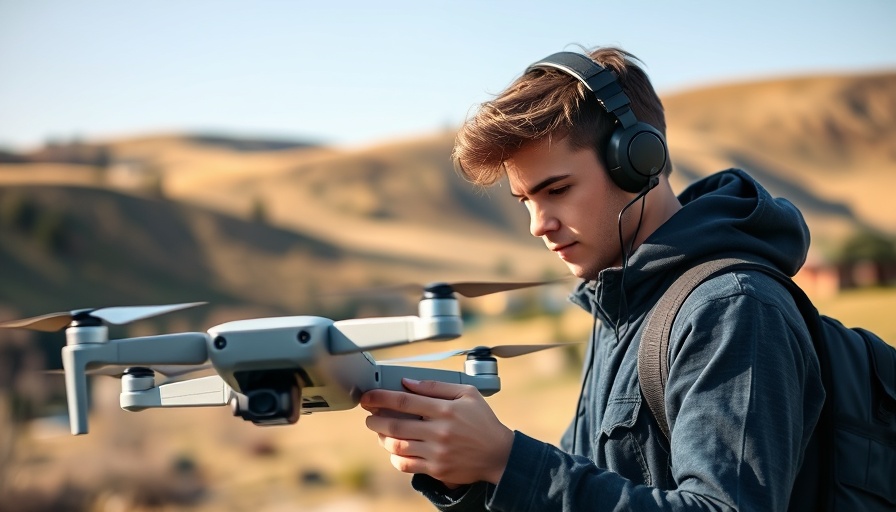
Understanding FAA Regulations for Recreational Drone Pilots
In a world where technology enables us to navigate the skies with the push of a button, understanding the legal framework surrounding recreational drone flying is essential. The Federal Aviation Administration (FAA) has set regulations to ensure safety and responsible use of airspace. For enthusiasts looking to fly drones purely for enjoyment, knowing the foundational aspects of these laws can greatly enhance the flying experience.
In 'Flying a Drone for Fun? Know These FAA Rules First', the discussion dives into the crucial regulations every drone hobbyist should be aware of, prompting a closer look at these rules and their implications.
What is Section 44809 and Why Does It Matter?
Section 44809, also known as the exemption for Limited Recreational Operations of Unmanned Aircraft, is pivotal for drone hobbyists. This regulation allows you to fly without a Part 107 commercial license, provided you adhere to specific guidelines. It exists to maintain safety within the airspace while permitting personal enjoyment. For instance, engaging in volunteer work or commercial activities, such as real estate photography, disqualifies your flight as recreational, thereby requiring a commercial license.
The Importance of Community-Based Organizations
To further reinforce safety, the FAA mandates that recreational drone pilots must follow the safety guidelines of an FAA-recognized Community Based Organization (CBO). While you are not obligated to join any organization, familiarizing yourself with their regulations can bolster your understanding and confidence as a pilot.
The Recreational UAS Safety Test: Your Passport to Safe Flying
One of the key steps before launching your drone is completing the Recreational UAS Safety Test, commonly referred to as the TRUST exam. This free, concise test helps ensure that drone pilots possess the necessary knowledge about safe flying practices. Completing this test not only enhances your flying skills but also provides you with a certificate that you are legally required to carry during flights.
Registration and Remote ID: What You Need to Know
If your drone weighs more than 0.55 pounds (250g), registration with the FAA is mandatory for a fee of just $5 for three years. Having your drone registered is crucial, especially since remote identification is required for these registered drones. Consider remote ID as your drone's digital license plate, which broadcasts its location, facilitating monitoring and enhancing safety in shared airspace.
Flight Limits: Keeping Your Drone Under Control
Understanding flight limits is vital for any drone pilot. You are restricted to flying below 400 feet and need to maintain a visual line of sight. Avoiding crowded areas, such as open-air events or busy urban landscapes, aligns with FAA regulations aimed at preventing accidents with manned aircraft.
Know Before You Fly: Checking Airspace & Weather
Before taking off, always check both weather conditions and airspace restrictions. Awareness of Temporary Flight Restrictions (TFRs) surrounding event venues is essential to ensure adherence to the law. Flying carelessly can invite heavy fines, further underlining the importance of legal compliance.
Consequences of Ignoring FAA Rules
What happens if you violate these critical regulations? The FAA can impose fines of up to $1,500 for each infringement, putting you at risk not only of financial penalties but also limiting future opportunities—for instance, if you ever decide to pursue a commercial drone flying career.
In summary, knowing the FAA regulations and flying your drone responsibly not only fosters a safe environment for yourself but also contributes to the well-being of the entire drone community. Engaging in responsible flying enhances the enjoyment of your hobby. So, whether you’re capturing stunning landscapes or inspecting real estate, make sure to fly safely and legally.
If you're eager to start your journey in recreational drone flying, take the first step today! Familiarize yourself with the FAA rules and make this flying season the best yet for your drone adventures.
 Add Row
Add Row  Add
Add 




Write A Comment